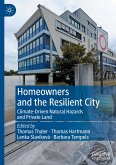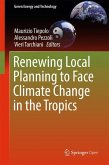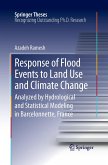This book is open access under a CC BY 4.0 license.
This book aims to inspire decision makers and practitioners to change their approach to climate planning in the tropics through the application of modern technologies for characterizing local climate and tracking vulnerability and risk, and using decision-making tools. Drawing on 16 case studies conducted mainly in the Caribbean, Central America, Western and Eastern Africa, and South East Asia it is shown how successful integration of traditional and modern knowledge can enhance disaster risk reduction and adaptation to climate change in the tropics. The case studies encompass both rural and urban settings and cover different scales: rural communities, cities, and regions. In addition, the book looks to the future of planning by addressing topics of major importance, including residual risk integration in local development plans, damage insurance and the potential role of climate vulnerability reduction credits. In many regions of the tropics, climate planning is growing but has still very low quality. This book identifies the weaknesses and proposes effective solutions.
This book aims to inspire decision makers and practitioners to change their approach to climate planning in the tropics through the application of modern technologies for characterizing local climate and tracking vulnerability and risk, and using decision-making tools. Drawing on 16 case studies conducted mainly in the Caribbean, Central America, Western and Eastern Africa, and South East Asia it is shown how successful integration of traditional and modern knowledge can enhance disaster risk reduction and adaptation to climate change in the tropics. The case studies encompass both rural and urban settings and cover different scales: rural communities, cities, and regions. In addition, the book looks to the future of planning by addressing topics of major importance, including residual risk integration in local development plans, damage insurance and the potential role of climate vulnerability reduction credits. In many regions of the tropics, climate planning is growing but has still very low quality. This book identifies the weaknesses and proposes effective solutions.








